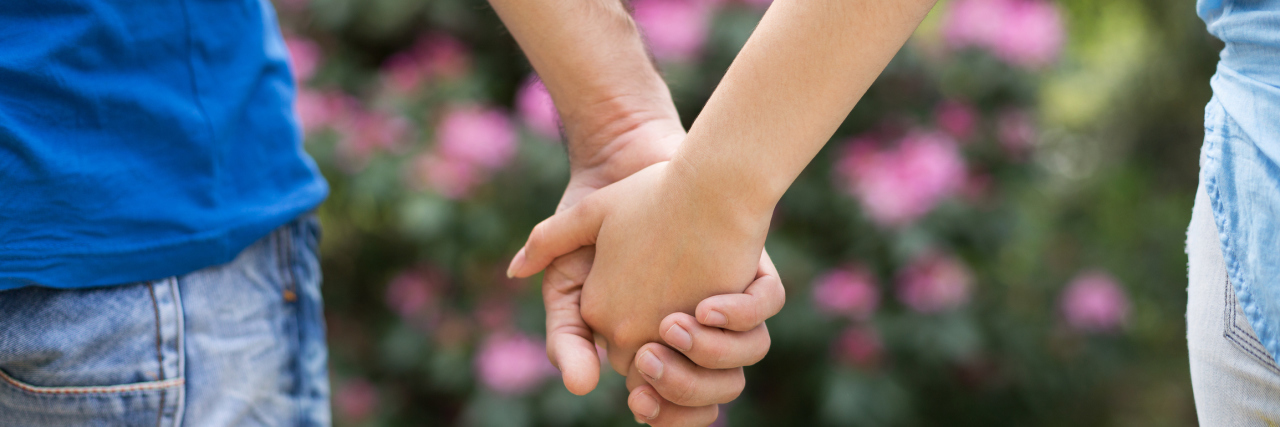I wasn’t expecting you. At 25 years old, I had yet to have a partner who truly respected the reality of my depression and anxiety.
My first serious boyfriend claimed not to “believe” in depression (although in retrospect, maybe he just didn’t believe in mine). My last boyfriend told me my anxiety was too stressful, often taking to isolating himself in order to avoid the “tension” I supposedly carried about the world with me.
While I managed to find immense happiness with each partner I had, I could never fully feel safe in my truth knowing an integral part of my being was misunderstood, unaccepted and so often invalidated by the person I loved. I would lie awake at night next to another body, feeling more lonely than I ever did alone, trying to convince myself that what did exist in my relationship was enough. Someone who supported my profession, aspirations, body and intellect, even if they didn’t know how to embrace my mental illness in the most menial of ways.
So when the dam broke at 2 a.m., two months into our relationship with not nearly enough time to prepare you for all my truths, I wasn’t ready for you to leave. Surely you would.
Panicked gasps for air had overtaken my body from a dead sleep, leaving a river on the pillow wide enough to hold the breadth of my thoughts. But you didn’t flinch. Instead, I met a new part of my heart and felt it yawn awake, billowing open like the folds of a hot air balloon from the inside out. And I flew along with it.
You kissed away my tears, wordlessly empathetic, and I felt seen. You held me through the hyperventilation, whispering poetry into my ear and I felt whole. And when the anxiety had me apologizing for the burden I believed myself to be, you said, “I love the whole package.” I thought maybe it was too good to be true.
It wasn’t — this is what we all deserve. For many of us with anxiety/depression, we learn quickly how to use isolation as a protective mechanism from those we deem likely to hurt us. We’re afraid for our partners/friends/family to see our pain because they may not believe us. Because so many haven’t. Because we’ve been told our vulnerability is weakness and our panic is “too much.” Because sometimes, it’s easier to hide mental health challenges than for the people we love to pass our symptoms off as “irrational” or “emotional” instead of seeing and accepting them for what they are: Chemical and utterly, beautifully human.
The little things, therefore, are often all we need to help us know we’re safe. For a panic attack that could have lasted much longer, the simplest gestures of support had me calmer than I could have made myself in under two minutes – all because for the first time, I didn’t feel “crazy” in the presence of my partner. I felt heard. I didn’t feel judged, I felt validated. I didn’t feel alone, I felt loved.
You held me, you listened, you honored my experience. Pure and simple. And when you put your own discomfort aside in order to see the humanity in my illness, loving me not in spite of it but in awe of it, I learned what it felt like to be loved in this way as a whole person. A kind of love I hoped for but hadn’t been sure existed.
It surely does – and there’s enough to go around for all those giving it.
Getty Images: Milkos

